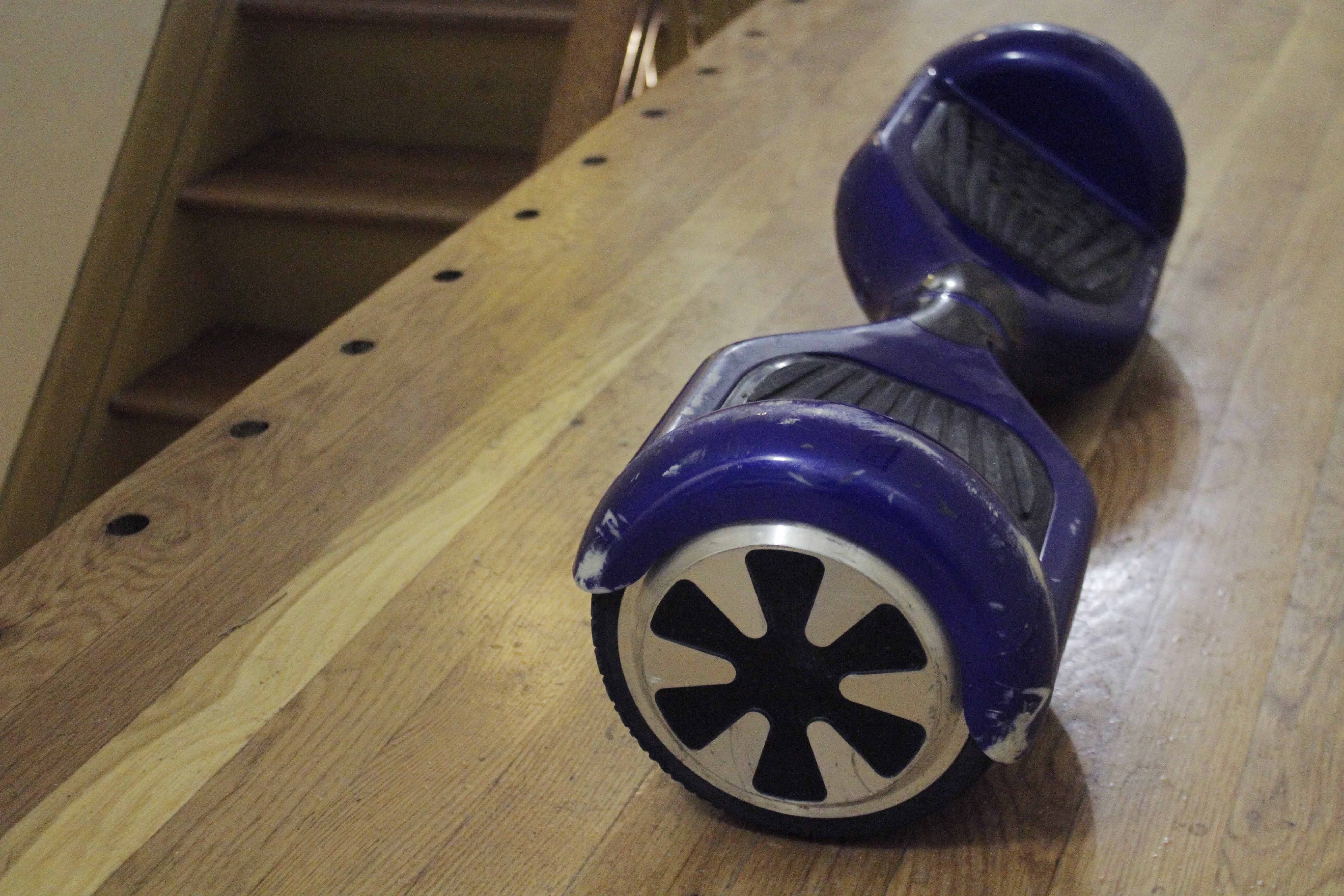
This article has been updated to reflect the version in print on Jan. 20.
Yale became the most recent university to ban self-balancing scooters from its campus last week.
In a campuswide email, University Secretary and Vice President for Student Life Kimberly Goff-Crews and Deputy Vice President for Human Resources and Administration Janet Lindner announced that hoverboards and similar items would no longer be allowed on campus, citing safety concerns with the increasingly popular devices, whose batteries may be prone to explosions and fires. Yale is not alone in its concerns: more than 30 other universities nationwide have adopted regulations restricting on-campus use of self-balancing scooters, including Amherst College, the University of Massachusetts Amherst and Washington State University.
“Until more analysis has been done and safety standards improved, we feel it is prudent to ban [self-balancing scooters] from use on campus or from storage in any university-owned, occupied, rented or managed building,” the email read. “This includes all hoverboards and any associated items, such as self-balancing scooters, hands-free Segways, powerboards, etc. If you have one of these devices, please remove it from campus.”
The email added that if immediate removal is not possible, then the device’s battery should be withdrawn and disposed of. Current University regulations have been amended and the policy will continue to be updated as more information becomes available, Goff-Crews wrote.
Costing anywhere from several hundred to over a thousand dollars, the vehicles made popular but expensive gifts during the holiday season. Sam Feinburg ’18, who received a hoverboard as a birthday present, said the vehicle was convenient and allowed him to access areas more quickly and easily. He used his hoverboard on campus until the ban. Othmane Fourtassi ’19, who had also been using his hoverboard on campus, said he had been using his for filming purposes. Still, both students acknowledged the safety concerns cited by the administration.
“Obviously [banning hoverboards] is the right thing to do, as much as it pains me to say that,” Feinburg said. “It’s a knife to the heart, but the risk-reward makes it a pretty obvious decision.”
All three students interviewed who owned hoverboards said they did not have any fire-related accidents with their vehicles. Brian Kitano ’19, who purchased one for $350, emphasized that oftentimes the incidents occur because of misuse. The reason these fires are happening is because people leave them plugged in, he said, but the instructions say to not leave them charging for more than three hours.
The University’s new policy may be difficult to follow for hoverboard owners. Fourtassi said that as an international student, taking the board home would be very inconvenient especially since it cannot be shipped. Feinburg agreed, adding that removing the battery from the device would be difficult as well, as it would require ordering a set of screwdrivers and unsoldering the battery from the motherboard.
“The whole controversy surrounding their safety comes down to [the boards] catching on fire,” Kitano said. “One reason is because they’re being made cheaply, but also if you don’t use them properly, then you can’t expect the same safety standards.”
The policy change comes in light of recent hazards involving hoverboards across the country. From New York to Washington, various states have reported incidents of the vehicles’ batteries causing explosions and fires. In December, the U.S. Consumer Safety Product Commission announced that it was investigating dozens of hoverboard-related fire accidents which resulted in injuries such as concussions, fractures and internal organ damage.
The University of Connecticut instituted a similar ban in the first week of January. UConn spokeswoman Stephanie Reitz said the prohibition extends not only to students but also to faculty and staff members. While the school has not yet had any fires or explosions related to the motorized scooters, she said, the vehicles are still a hazard to riders and pedestrians as they do not have brakes or other safety features found on other similar devices.
“Like other universities, UConn has been watching the news about potential fire dangers with these devices in recent months,” Reitz said. “More than 12,700 students live at our Storrs campus, and having a potential fire danger in their midst was absolutely unacceptable.”
All major U.S. airlines have also banned self-balancing scooters.







